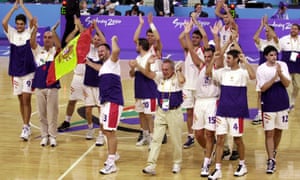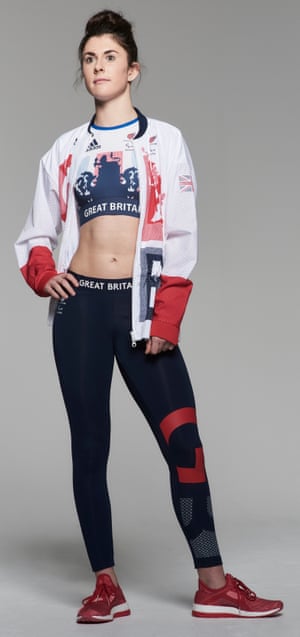UK Athletics is to launch an inquiry into the classification of Paralympic track and field athletes following claims that some have been allowed to compete against those who are significantly more impaired, resulting in a boost to their medal chances.
Tanni Grey-Thompson, Britain’s most decorated and best-known star of the Paralympics, is among those who have complained in recent months, expressing her concern that some athletes have obtained a competitive advantage due to being mismatched.
Her views have been relayed to UK Athletics (UKA), which governs track and field athletes in Britain, and those concerns, together with similar claims made by the parent of another Paralympian, have prompted it to commission an inquiry into its classification procedures.
Ed Warner, the chairman of UKA, declined to comment. It is understood that the inquiry will begin after next week’s Paralympics in Rio, Brazil, at which the British team hopes to build on its success at the London Paralympics of 2012.

Lady Grey-Thompson approached UK Sport, the government-funded sports agency, and the British Paralympic Association (BPA), the body with overall responsibility for the GB Paralympic team across 27 sports, with some of her concerns, and these were communicated to UKA.
She told the Guardian: “It’s absolutely vital that classification is taken seriously. It goes to the heart of the integrity of the sport. I do think it needs to be looked at.
“If there’s any wrongdoing found it has to be taken seriously. I have had conversations with a number of organisations and those are ongoing.
“As a passionate Paralympian and supporter of the movement I am concerned about anything that threatens the integrity of our sport.”
The concerns emerged days before the Rio Paralympics are due to begin on Wednesday. The 2012 Paralympics were a huge success, with millions of TV viewers, 2.7 million tickets sold and more than 4,000 athletes competing from 164 countries.

Participants in Paralympic events are grouped into categories according to the degree of their disability so that competitions are fair, but concerns across all Paralympic sports about incorrect categorisation have been increasing globally as the sport has developed.
In the past Grey-Thompson and other high-profile disabled former athletes, such as the TV presenter Ade Adepitan, have drawn attention to “intentional misrepresentation”, calling it the equivalent of drug-cheating in able-bodied sport.
Classifications are based on competitors’ medical records and observational assessments carried out under the auspices of UKA for Paralympians in track and field events.
Dr Mukul Agarwal, a former medical officer for the GB Paralympics team, said: “I do have concerns about the way classification works currently and about the potential for cheating. Medical records are part of the classification system but there’s a degree of trust in what is offered to the classifiers. Should an athlete, coach, national governing body or a country choose not to present the entire data it is possible that an inaccurate classification could take place.”
Classification is sport specific and is governed by different international sports federations under the codes of the International Paralympic Committee (IPC). Competitors are observed in training and at competitions during the process.
Umbrella Paralympics organisations, such as the BPA, play no hands-on role in the classification of individual athletes apart from ensuring that the process conforms to the rules.
One of Great Britain’s leading young Paralympians, who has won medals in the Games, is understood to be close to confirming that she has withdrawn from her sport because of her disquiet about what is happening in classification. Her father said: “She’s categoric about leaving the sport. She feels there has been a breakdown in her trust and faith in the classification system.”
While the majority of Paralympians would appear to be correctly classified, accusations of misrepresentation have become so widespread that some of the Paralympian sports’ governing bodies are now attempting to control them, with one UKA official sending an email warning athletes not to make “baseless” claims or face legal action. The nature of Paralympic classification can lend itself to some disgruntled competitors and their advocates pointing the finger at their rivals, whether or not they are actually competing in the right class.
Historically, there have been a few high-profile cases of cheating in Paralympic sport. At the 2000 Games, the Spanish basketball team was disqualified after winning gold. It had been discovered that most of the team members did not have learning difficulties as they had claimed.

Even some top sports officials have been known to cast doubts. The Guardian has discovered that Paula Dunn, UKA’s Paralympics head coach, said earlier this year that she would resign after admitting she made comments suggesting one of Britain’s best medal hopefuls was too able-bodied for their category. She later retracted her resignation and now insists that the athlete in question is correctly classified – a view held up by an internal UKA inquiry.
Dunn also circulated an email to athletes and their families in December last year relating to classification, stating that the athletics governing body “will have no hesitation in taking legal action against anyone found to have made baseless allegations in the public domain”.
When asked about the email this week, Dunn told the Guardian: “It was clarified at a later date. I did put it out … I think I had just come back from a major championships and we had had a lot of people making complaints, and you get slightly frustrated that you have gone through a system and people are still questioning whether you have got it right or wrong.”
There are also concerns that flaws in the classification system may result in competitors being inadvertently placed in the wrong classes.

Michael Breen, the father of the Paralympic runner Olivia Breen, has complained to the sport’s governing body about the way athletes are classified and his views have also helped prompt the UKA to launch its planned inquiry. Breen, a solicitor, said: “The current classification system is not fit for purpose. Consequently, some athletes have been incorrectly classified.”
He said, in his opinion, UKA seemed to be primarily focused on medals. Citing the Dunn warning email, he claimed: “They blatantly threaten athletes, their parents and coaches with litigation and therefore because of this intimidation people are too frightened to speak out about erroneous classifications. This is not how Paralympic sport should be conducted.”
The claims of cheating and wrongful classification have so far failed to gain much traction with the governing bodies, however. Xavier Gonzalez, the IPC’s chief executive, said last month that the committee had looked into 80 individual cases but had failed to find any proof of competitors being wrongly categorised.
Breen questioned these findings and the level of proof required by the IPC. He said the classification system would be fairer if all athletes consented to their relevant medical records being made public, and if a clear whistleblowing policy was established.
Tim Hollingsworth, the chief executive of the BPA, said Grey-Thompson had not identified to him any specific athletes about whom she had concerns. He said: “What she has done and said to me and others is that she’s aware of some athletes within the system who would like to see classification made more robust and transparent and she is pushing hard to advocate that.”
He insisted he had no concerns about classification but conceded that it could be improved. “We will be drawing on some of these thoughts about transparency and robustness and athletes feeling that classification should be objective and transparent. We intend, post-Games, to take a more considered view about how [individual] sports and the IPC can develop practices that are more transparent.”
An IPC spokesman said: “The IPC firmly acknowledges that the classification environment requires continued attention. Over the past years dialogue with IFs [international federations] and NPC [national Paralympic committee] classification experts has intensified and more sports and IFs have recognised the urgent need for investments in research, classifier training and certification, and potentially some revisions of classification systems.”



